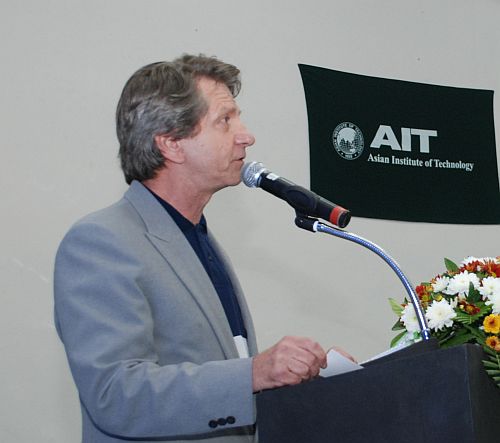Several rounds of air quality testing have been accomplished at AIT by
external experts. The latest testing occurred on 10 February 2012, when
twenty samples were collected from 2nd-floor academic, administration
and residential buildings that had been cleaned but not sanitized.
According to a summary report released by CLIQ Director Prof. Louis
Hornyak, AIT’s air quality can still be improved, although significant
progress has been made to comply with the Singapore standard of <
500 CFU/m3 (colony forming units per cubic meter of air) of bacteria
and molds.
The results are evaluated in the report and compared to testing
conducted previously.
Tests indicated that air on upper floors performed better than ground
floor areas. In previous testing, it was found that cleaning with
sanitization made a significant difference in reducing the population
of airborne microbes.
For 2nd-floor academic, administration and residential buildings, 85%
complied with Hong Kong’s criterion of < 1000 CFU/m3 for molds and
bacteria, although most bacteria levels nearly adhered to the stricter
Singapore standard of < 500 CFU/m3.
Some 23% and 38% of buildings respectively showed mold and bacteria
levels that conformed to the Singapore standard.
“This is good news overall, and is an encouraging trend,” Prof.
Hornyak, a nanotechnology expert, said. Thailand currently does not
have microbe air quality health and safety standards, he added.
For those on campus with respiratory discomfort or more serious
issues, Prof. Hornyak advised people to take proper precautions.
Testing of air quality is planned once per month for the next three
months.
To read the detailed report, visit the relocation-guide.ait.asia
website and the CLIQ website.

